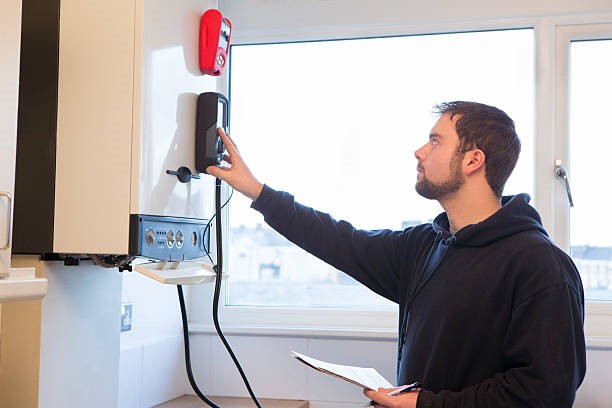
19/01/2023 by Stillorgan Gas 0 Comments
How To Resolve Cold Spots in Your Radiators & Remove Boiler Sludge
A radiator's main job is to heat the space it resides in. Naturally, you examine the radiator first if you
discover that the room's temperature is off. Cold patches on the radiator, whether on the top or
bottom, are the most typical issue. When there is an obstacle stopping the water from flowing inside
the radiator, these so-called "cold spots" develop. It leaves unheated areas where it cannot reach.
Sludge in the radiator may be the solution if you've been having troubles with your central heating
and are having trouble figuring out what's wrong. Sludge can contribute to a wide range of problems
that seriously impair the efficiency of heating systems, and frequently the cause is not immediately
apparent.
Sludge build-up in central heating systems is a frequent issue in houses of all shapes and sizes for a
variety of reasons. If you follow our advice, you'll soon feel competent enough to handle the matter
if you suspect that your heating system has a sludge problem.
What Is Sludge?

Not familiar with sludge? Let's shed some light on the issue that has long plagued central heating
systems, shall we?
Sludge is essentially just contaminated water. Over time, the water in a heating system can get contaminated, and when these water particles come into contact with the rust in the pipes, sludge can form quickly.
Older homes are more likely to experience sludge in radiator issues since rust is more common in
pipes that have been working hard for many years. Sludge problems frequently start where pipes are
connected because of rust buildup.
Of course, it can be quite difficult to see if rust is accumulating inside pipes, which is why sludge
damage can occasionally catch homes off guard. Regular inspections, however, can find sludge
before it starts to cause problems that are expensive to address.
What Does Sludge Do?
It shouldn't come as a surprise to you to learn that sludge is harmful for heating systems. The foul
liquid can damage radiators and plumbing in a variety of ways, and the longer it is left, the worse
these problems get.
Blockages in pipes and radiators, which can cause radiators to perform very inefficiently with cold
patches or even stop radiators from warming up at all, are typical sludge-related issues. Sludge can
also cause sections of the heating system to become irreparably damaged; for example, replacing a
heat exchanger after sludge has gotten inside of it might be expensive.
Sludge has the ability to clog radiator valves and even the pipes itself. Less water can flow through
when this occurs, making the entire system far less effective. This has side effects, with pressure
being the most severe. Because the system won't be aware of the change in pressure, it will pump
water at an excessively high pressure. Then, as you might expect, those expensive pumps and piping
might be wrecked. In the worst case, the boiler may need to be completely replaced.
How can I get rid of my sludge issue?
Boiler sludge issues might sound like a nightmare, but if systems are properly maintained and
checked frequently, they shouldn't be too troublesome. Bleed your radiators and examine the water
that comes out if you think sludge may be the source of issues with your heating system. You can be
sure that sludge is present if the water in your radiators seems unclean and discolored. But don't
worry; the issue can be quickly fixed without spending a fortune. To find out how, simply adhere to
the procedures below.
Schedule A Professional Power Flush

Similar to physically cleansing radiators, power flushing is more efficient at getting rid of the
toughest sludge that a manual flush might not be able to get rid of. Since this is a professional-level
task, there will be a fee. Depending on the numer of radiators you have, you can anticipate spending anywhere
from €799 to €899.
Using a stronger, pressurized hose that can be quite successful at clearing sludge buildup, the
engineer will flush radiators. The disadvantage of this strategy, which is more significant the older
your radiators and plumbing are, should be noted. Sometimes, the excessive pressure might harm
couplings and valves, which could lead to leaks further along the line.
Start Fresh with New Radiators

Changing radiators out with newer, sludge-free ones is another alternative if a manual flush doesn't
address the issue. When compared to scheduling a power flush, this is typically less expensive, and if
your radiators aren't very large, it won't cost much.
New radiators may be installed fairly rapidly, and their increased efficiency is a further advantage to
take into account. Not only will the sludge be eliminated, but you'l also gain access to stronger,
more effective radiators that will quickly make your house feel warm and cozy.
Don’t Forget to Get Your Boiler Serviced

Boilers servicing should be conducted once a year. This is crucial for both safety reasons and to ensure
that your system is operating as efficiently as possible and that any problems are discovered as soon
as possible.
Sludge in the system will be identified by a service, allowing action to be done to remove it before it
damages radiators, valves, and pipes. By staying on top of boiler services and making sure the
system is operating flawlessly, prevent sludge buildup.
Sludge is a frequent issue with central heating systems, and if it isn' discovered right away, it might
cause a lot of damage. Sludge can be eliminated in a number of methods without causing too much
disruption, though. Make sure you're ready to handle a sludge problem as soon as you detect one by
keeping an eye out for the symptoms of boiler sludge. If your system starts to malfunction, get
guidance from nearby experts or use our suggestions to fix the issue yourself. Stop sludge in its
tracks to extend the life of your boiler and prevent it from bringing your heating system to a
complete halt.
If you’re having issue with cold spots in your radiators, Stillorgan Gas, Plumbing & Electrical are here
to help! Call the office on 087 460 8501 to speak to one of our friendly staff members to get booked
in today!

Comments
Leave a comment